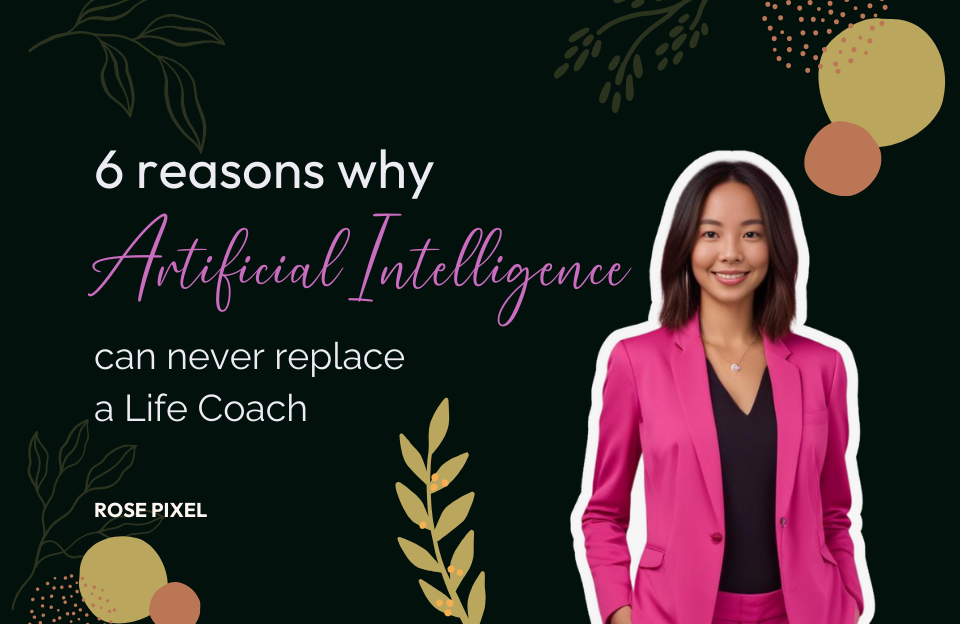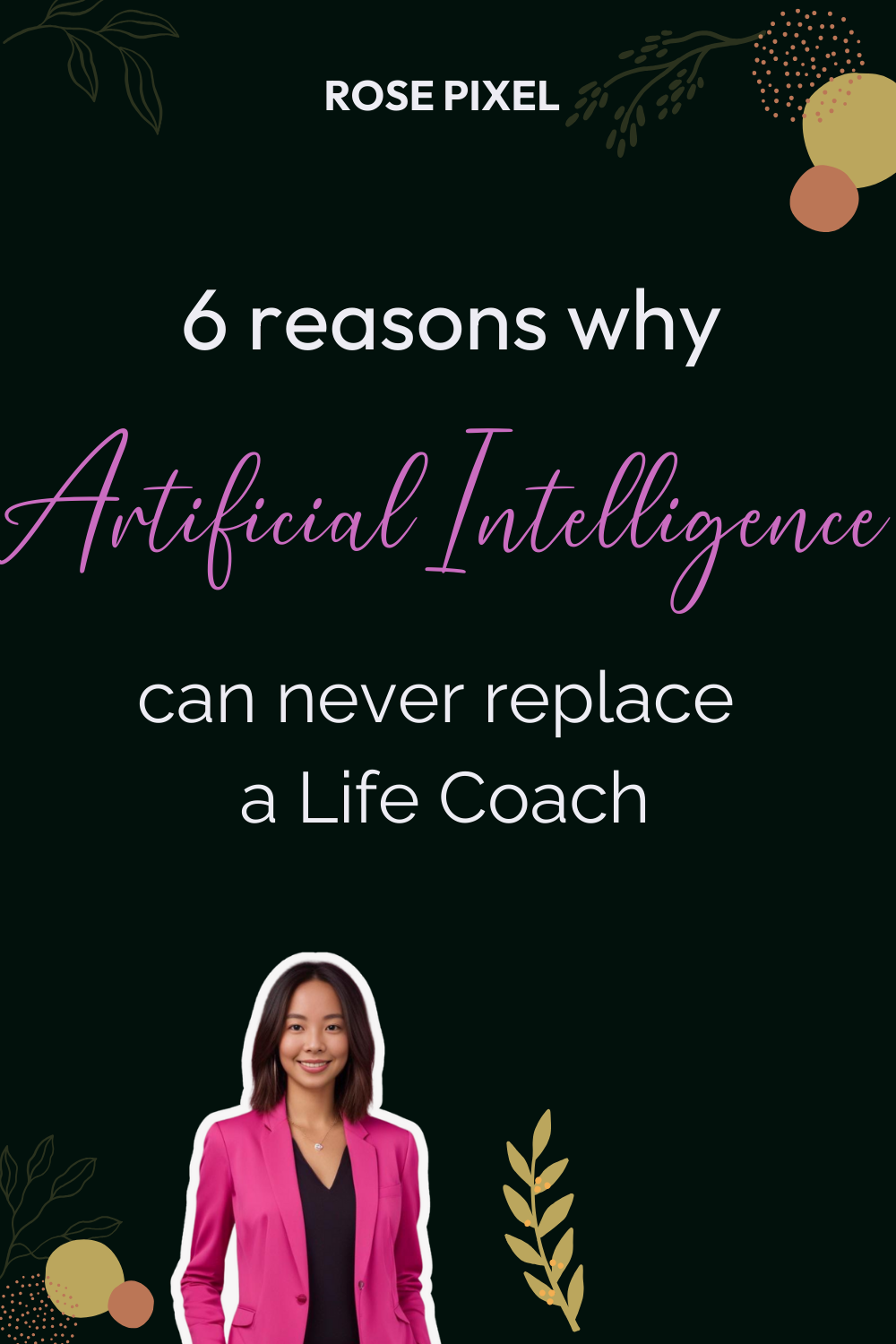With the rise of artificial intelligence (AI), many areas of life and business are becoming more streamlined, efficient, and even insightful. Coaching is no exception. AI can assist by setting reminders, tracking progress, and analyzing data to offer structured insights.
But for those considering whether a life coach can be replaced by algorithms, there’s a fundamental truth to remember: no technology, no matter how sophisticated, can replicate the deep human connection, empathy, and transformative guidance that a life coach provides.
1. Emotional Intelligence and Empathy Are Irreplaceable
The heart of effective coaching is empathy—a coach’s capacity to see, feel, and understand the journey of another person. While AI can mimic conversation and provide relevant information, it lacks the depth and authenticity needed to truly resonate with the unique emotional experiences of an individual.
- Building Genuine Trust: A coach builds a relationship founded on trust, creating a safe space where clients can express their hopes, fears, and vulnerabilities without judgment. This trust is developed through authentic human connection, a bond AI simply cannot replicate.
- Empathy Beyond Data: When someone experiences a setback, a human coach can offer reassurance and encouragement based on their understanding of the client’s emotions. This kind of response is rooted in real empathy—a quality that goes beyond data points and algorithms.
2. Tailored, Intuitive Guidance
Life coaching is deeply personal, adapting to the nuances of each client’s journey. Unlike AI, which operates on general patterns, a coach’s approach is flexible, intuitive, and attuned to the unique dynamics of each individual’s life.
- Personalized Strategies: Coaches draw on their training, intuition, and life experience to craft tailored strategies that resonate deeply with clients. This personalized guidance takes into account not only the client’s goals but also their personality, fears, and aspirations.
- In-the-Moment Adaptability: A life coach can adapt their approach in real-time, adjusting techniques to fit the changing emotions, energy, or even unexpected life events of the client. This level of responsiveness requires empathy, intuition, and insight—qualities beyond the reach of AI.
3. Complex Problem-Solving with a Human Touch
Human lives are complex, and personal challenges are rarely one-dimensional. A life coach sees the whole person, factoring in emotions, relationships, values, and dreams to offer holistic support.
- Holistic Understanding: Coaches understand that each area of a client’s life influences the others, and they help clients find clarity by addressing the intersections of these various aspects. This comprehensive, human approach allows for support that goes beyond mere logic or data.
- Creative Solutions in Partnership: Real breakthroughs often come from the synergy between a coach and client. Through collaborative brainstorming, a coach encourages the client to explore new perspectives and find solutions that resonate on a personal level. AI, no matter how advanced, cannot create this collaborative energy or inspire in the same way.
4. Community and Belonging
A life coach often serves as a bridge to a larger community of support and shared experiences. This sense of belonging is critical for personal growth and healing, and AI cannot foster or participate in a genuine human community.
- Building Connections: Life coaches understand the importance of connecting clients to like-minded communities, where they can find encouragement and mutual support. A coach might introduce clients to groups or networks that align with their personal or professional goals, creating a valuable sense of belonging.
- Creating a Support Network: Beyond the coaching relationship, life coaches often help clients build a web of support, encouraging them to lean on friends, family, or peer groups. This community-centered approach provides the client with a long-term foundation for growth and resilience—a quality AI, focused on individual interactions, cannot offer.
5. Motivation and Accountability with Heart
Yes, AI can set reminders, send notifications, and even track milestones. But motivation that leads to transformation is born from human connection, not automated alerts.
- Supportive Encouragement: A life coach offers not just reminders, but real, unwavering support. They celebrate wins and provide a source of strength during setbacks, reminding clients of their inner resilience. This type of encouragement is grounded in genuine care and a commitment to seeing the client succeed.
- Real Accountability: Knowing a coach is there to check in, offer perspective, and gently challenge when needed is an anchor that keeps clients moving forward. This kind of accountability goes beyond mere tracking; it’s a partnership rooted in mutual respect and commitment to growth.
6. Ethical and Emotional Sensitivity
Coaches regularly navigate complex emotional and ethical terrain, managing delicate issues that require sensitivity, ethics, and a keen understanding of human psychology.
- Handling Sensitive Issues with Care: A trained coach knows how to approach difficult topics with respect and care. They recognize when to encourage growth and when to step back, creating a safe space for clients to explore without feeling pressured or judged. AI lacks the sensitivity required to handle these nuanced, human-centered moments.
- Recognizing Boundaries: Coaches are skilled at reading emotional cues and understanding when to respect boundaries. This fine line requires a level of ethical awareness that AI is simply unequipped to recognize.
7. The Irreplaceable Power of Relationship
The transformative power of life coaching lies in the bond between coach and client. This relationship creates a foundation for meaningful growth, providing the client with a trusted guide who walks alongside them.
- A Journey of Shared Experiences: Coaches often share insights, experiences, and encouragement that foster a sense of shared journey. Clients return to the same coach because of the trust, understanding, and continuity that deepen with time. No AI can replicate the subtle dance of human connection that forms through shared experiences and mutual respect.
- Long-Term Commitment: Life coaching isn’t about quick fixes; it’s about guiding clients through the long haul of personal growth. Coaches commit to this journey with their clients, forming a lasting partnership that helps clients achieve meaningful change over time.
The Heart of Life Coaching: A Human-Centered Art
While AI can be a valuable tool to enhance and support certain aspects of coaching, it will never replace the essence of what makes life coaching so powerful: the human connection. AI can offer resources, structure, and data-driven insights, but it lacks the empathetic presence, adaptability, ethical understanding, and relational depth that only a real person can provide.
For those who wonder if AI will replace coaches, the answer is clear. Life coaching is an art, rooted in empathy, trust, and an unwavering commitment to the growth of another person. AI can assist in the process, but it cannot replicate the heart and soul of a coach. As technology advances, let it be a tool in the hands of life coaches—not a replacement—so they can continue to offer the profound, human-centered guidance that truly transforms lives.





